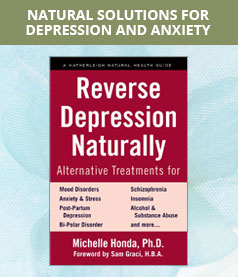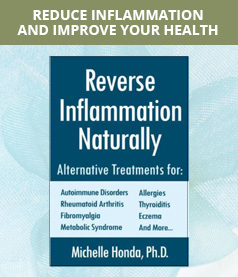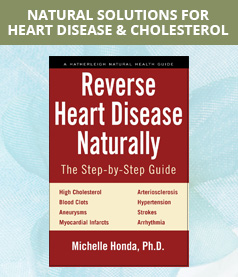
Irritable bowel syndrome (IBS) is a functional disorder, expressed by physical and sensory symptoms. The predominate disturbance centers around the frequent visits to the bathroom and the symptoms associated with the bowel habits. Common complaints involve abdominal pain, bloating, constipation or diarrhea and anxiety. It is also said to be a condition defined as “absence of organic disease.” As with other gut dysbiosis conditions, irritable bowel syndrome causes great discomfort in the person’s day to day life to the point of affecting their quality of life. Most times, people with this disorder miss work or are unable to attend social events such as birthdays, meetings or even short distance trips. Despite these symptoms and the characteristic chronic disease, the prognosis is considered manageable with no major complications.
About 30% of the general population suffer from irritable bowel syndrome and is a major cause of absence from work. Most, if not all people have experienced an IBS symptom in their life. Think of the times you had butterflies in your stomach and had to quickly visit the bathroom. It is among the most common cause of referral to a gastroenterologist and is more frequent in younger women (20 to 30 years old) than in men. The following is a glimpse at who contracts IBS symptoms.
• Men – 35% to 40%
• Female – Approximately 60% to 65%
• Worldwide prevalence rates ranging from 9–23%
• U.S A. statistics range generally in the area of 10–15% – between 2.4 and 3.5 million accounting for up to 12% of total visits to primary care providers. The cost to society in terms of direct medical expenses and associated with loss of productivity – estimates range from $21 billion or more annually.
• Statistics show, 5 million Canadians are diagnosed with Irritable Bowel Syndrome, plus, 120,000 develop the disease each year. The economic burden of Irritable Bowel Syndrome (IBS) is in excess of $6.5 billion each year, not including drug costs and an additional $8 billion of lost productivity each year.
 book Reverse Gut Diseases Naturally. Learn how to completely reverse your disease and many other gut complaints, far more quickly than you could imagine. Look what others have achieved.
book Reverse Gut Diseases Naturally. Learn how to completely reverse your disease and many other gut complaints, far more quickly than you could imagine. Look what others have achieved.What Are the Symptoms and Characteristics of Irritable Bowel Syndrome?
1. Abdominal pain
2. Bloating
3. Discomfort
4. Constipation/ Diarrhea
5. Anxiety and Nervousness
Symptoms vary from person to person. In some people, constipation is predominant. Constipation is the retention of stool in the intestine for a longer period than normal. At times when defecation is achieved, the patient may eliminate a small amount of stool yet has the feeling of incomplete defecation. In addition, mucus in the stool is often present. Mucus is a substance that coats the lining of the digestive tract and serves as a lubricant and protection.
Many patients suffering with irritable bowel syndrome have a tendency for diarrhea. Diarrhea involves a sense of urgency accompanied by watery stool. This syndrome usually entails an increased number of bowel evacuations to the point of disrupting work or social events. Even though diarrhea is a major problem, oftentimes some patients can experience periods of constipation followed by diarrhea or vice versa. These symptoms can persist for months and then return or stay for a certain period of time, or may get worse.
*For Chronic Diarrhea or bleeding, learn the best natural solutions to remedy these conditions – all without drugs in Chapters 5 and 11.
solutions to remedy these conditions – all without drugs in Chapters 5 and 11.
What Causes IBS?
There is no specific cause that determines the development of the disease. Several theories have been proposed.
The antibiotic Metronidazole used to treat infections of the urinary and digestive systems often trigger irritable bowel symptoms. Antibiotics are known generators for candidiasis.
*For the best solutions and treatment for superbugs and for replacing all antibiotics, view Chapter 7 in Reverse Gut Diseases Naturally.
Abnormal intestinal motor response – the gastro colic reflex that occurs after eating is too intense.
Serotonin – Researchers have shown that serotonin is related to the functioning of the gastrointestinal tract. Serotonin is a neurotransmitter that is responsible for delivering messages from one body part to another. 95% of serotonin receptors are located in the digestive tract and the remaining 5% in the brain. Cells found in the edge of the bowel, function as serotonin transporters (receptors). People suffering from irritable bowel syndrome, have a decrease in the activity of these receptors,
thereby promoting a decreased activity of this neurotransmitter in the digestive system. This results in changes in colonic motility and increases the pain receptors in the digestive system.
Perception altered (abnormal sensitivity to colon distension caused by the arrival of food).
Intolerance to certain foods like Gluten and Dairy – IBS patients can have a strong association to Celiac disease by way of gluten intolerance. The diet must be examined and addressed accordingly.
patients can have a strong association to Celiac disease by way of gluten intolerance. The diet must be examined and addressed accordingly.
Loss of normal function of fluid abasorption – The epithelium of the colon, which is affected by the immune system and nervous system, regulates the absorption of fluids in the colon. For persons with IBS, the colon loses its function to absorb fluid properly. This results in watery stool. For other people, this change is seen as excessive fluid absorption and the result is constipation.
Anxiety/Depression – In addition, people with irritable bowel syndrome frequently suffer with depression and anxiety, which is often the main culprit for the symptoms of diarrhea. All in all mood disorders can worsen symptoms.
*Learn how to replace your antidepressant medications with safe, effective natural solutions in Chapter 8.
Microbial Imbalance – Researchers have shown that irritable bowel syndrome can be caused by an intestinal infection. For all gut diseases, the micro-flora must attain balance at some point in order for these conditions to fully heal.
Gastroenteritis – Studies show that people who have had gastroenteritis sometimes develop irritable bowel syndrome. In this case it is called irritable bowel syndrome post-infection.
Contributing Factors to symptoms of Irritable Bowel Syndrome
1 Larger meals
2 Food Combing and inadequate fiber: Starch and Protein during one meal (meat and potatoes)
3 Bloating from gas in the colon
4 Medications
5 Foods – Wheat, rye, chocolate, barley, dairy, alcohol, corn products and corn syrup, sugar, caffeinated drinks, coffee, tea or cola/pop
6 Chemicals, preservatives, sulphites, dyes, fungicides, nitrates, nitrites
7 Fats – Bad fats, margarine, deep fried foods, saturated fat
8 Inadequate Good Fats – Omega 3 fatty acids (essential fatty acids) Fish oil and Seed oils
9 Stress, emotional conflicts, depression, anxiety, unhappiness
10 Hormones – Scientists have proven that women with irritable bowel syndrome have more symptoms during their menstrual periods, suggesting that reproductive hormones can worsen the symptoms.
Normal Function of the Colon
The large colon connects to the small intestine measuring approximately 5 to 6 feet in length, also comprising the rectum and anus. One of the main functions of colon is to absorb water, nutrients and minerals from predigested food upon arrival from the small intestine. A determining factor in the difference between the amount of liquid that reaches the small intestine compared to what is excreted in the feces – is the amount of water absorbed by the colon each day and the amount of liquid consumed.
Colonic motility (contractions of the muscles of the colon and the movements of its contents) is controlled by the peripheral nervous system, hormones and impulses that reach the colon. These contractions are called peristaltic movements, transporting the contents of the colon to the rectum. As the intestinal contents continues on through the colon, the process for water absorption, nutrients and salts takes place.
Food and fluids, directly initiate peristaltic action in the colon. A normal occurrence would involve several actions in the day where movement within the colon directs intestinal contents toward the rectum. However, when intestinal muscles are weak and do not contract well, these movements may result in abdominal pain, bloating, cramping, constipation or even diarrhea.
How Is IBS Diagnosed?
An important part of diagnosing IBS is the physical examination coupled by the patient’s health history. There are no specific tests for the diagnosis of irritable bowel syndrome, though some tests are performed to rule out other diseases. These tests include: blood test, stool examination and x-rays. To rule out organic disease, your doctor will order a sigmoidoscopy or colonoscopy to observe the state of the intestinal mucosa.
by the patient’s health history. There are no specific tests for the diagnosis of irritable bowel syndrome, though some tests are performed to rule out other diseases. These tests include: blood test, stool examination and x-rays. To rule out organic disease, your doctor will order a sigmoidoscopy or colonoscopy to observe the state of the intestinal mucosa.
If results are negative and the colonic mucosa is normal, the doctor will diagnose IBS based on symptoms presented by the patient and the information of their health history. This includes how often they feel abdominal pain and if the pain is related to a period of stress or the menstrual cycle in the case of women. Also, what is the consistency of stool and the recent changes in daily bowel habits?
Symptoms to Watch For in Suspecting IBS
Abdominal pain or discomfort for at least 12 weeks during the past year. These 12 weeks do not have to be consecutive. Abdominal pain may have one of the following characteristics.
1. Pain worsens with bowel movements
2. Pain promotes a change in frequency of bowel movements
3. Pain causes a change in the stool consistency
4. Change in frequency of bowel movements
5. Change in appearance of stool
6. Urgent need for defecation
7. Difficulty or inability to produce a bowel movement
8. Mucus in the stool
9. Bloating
NON Characteristic Symptoms of IBS
Presence of bleeding, chronic diarrhea, fever, weight loss and persistent abdominal pain are not normal symptoms that characterize IBS and may indicate the presence of another disease such as Crohn’s , Colitis, Ulcerative colitis (Pancolitis), Lymphatic colitis, or perhaps cancer.
What Is The Treatment For IBS?
Traditional Medicine
Unfortunately, there are many people who do not seek medical treatment in the presence of these symptoms and delay diagnosis. Many of them are self-medicated. In allopathic or traditional medicine – No cure has been found so far for irritable bowel syndrome. However, symptoms can be controlled. The doctor will indicate the appropriate treatment based on symptoms presented by the patient. A consultation with a dietitian will help with a diet. You will also need to incorporate techniques for managing stress, anxiety and depression if they exist. Medications are commonly prescribed for emotional imbalances and those which may be suggested for pain, inflammation, diarrhea, constipation, and antibiotics.
Holistic Treatment Protocol
A thorough discussion of the patient’s current and past health history. Any lifestyle changes affecting stress levels or dietary changes. Emotional state and any future concerns.
Any lifestyle changes affecting stress levels or dietary changes. Emotional state and any future concerns.
NON Drug Solutions and Replacement for the following:
Antibiotics
Antidepressant medication
Pain and Inflammation
Diarrhea
Gas and bloating
Constipation
Fatigue
Endocrine support
Dietary Protocol
A complete diet that no longer triggers adverse symptoms or further breaks the body down.
The daily diet will include quality fats, protein, simple carbohydrates or predigested carbohydrates, nourishing liquids and initially easy digested food preparation if required.
Supplements where deemed necessary to correct any major deficiency.
How Does Stress Affect IBS?
For the reasons discussed above, stress management constitutes a mainstay of treatment for irritable bowel syndrome.
Some Stress Management Techniques
1. Stress reduction (relaxation), relaxation therapies such as meditation
2. Counseling and support
3. Regular exercise like walking or yoga
4. Change stressful situations of everyday life
5. Adequate sleep
Preview my other helpful posts on enhancing the healing process: Best 5 Steps to Empower the Body to Heal: Fiber (2 posts) Malnutrition (2 posts) and Best Health series.
Diet Considerations to Help IBS?
Dietary changes improve symptoms of irritable bowel syndrome. Keep a record of food, liquid and symptoms along with any changes. This is one of the ways to tract food intolerances. For example, milk products are often poorly tolerated by most patients. To replace them the nutritionist will adjust your diet according to your tolerance. Yogurt is usually better tolerated than cheese and milk because it has the precipitated protein (predigested) simple sugars and beneficial bacteria to colonize your gut. Fresh juices made from vegetables, greens and fruit provide extra nutrients not found in cooked food.
FIBER: The type of fiber is to be considered and implemented. Fiber in the right dietary form and providing nutrition as well as a medium to slow down symptoms of diarrhea – is a mainstay. However dietary fiber is not always well tolerated. It is very useful in cases of irritable bowel syndrome with constipation tendency. To raise the amount of fiber in your diet you can increase the consumption of cereals and grains, fruits and vegetables. Too much of “insoluble” fiber in the diet can have adverse effects such as gas and bloating, so it is advisable to increase your “soluble” fiber intake of 2 to 3 grams per day and assess tolerance.
the right dietary form and providing nutrition as well as a medium to slow down symptoms of diarrhea – is a mainstay. However dietary fiber is not always well tolerated. It is very useful in cases of irritable bowel syndrome with constipation tendency. To raise the amount of fiber in your diet you can increase the consumption of cereals and grains, fruits and vegetables. Too much of “insoluble” fiber in the diet can have adverse effects such as gas and bloating, so it is advisable to increase your “soluble” fiber intake of 2 to 3 grams per day and assess tolerance.
The intake of 6 to 8 glasses of water a day will help keep your bowels hydrated and prevent constipation. If you suffer from irritable bowel syndrome with a tendency for diarrhea, it is important to replace fluids lost in the feces. Avoid fizzy drinks and sugar because they irritate the bowel. Chewing gum and eating fast can cause gas and bloating. Try to chew slowly and eat in a relaxed atmosphere.
Large meals can cause diarrhea, so it is recommended to consume smaller meals more frequently. This will help control the symptoms of irritable bowel syndrome. Consuming foods rich in complex carbohydrates and low in fat (legume family, rice, cereals, fruits and vegetables) may help improve the performance of your bowel.
Is IBS Linked To Other Diseases?
As its name implies, irritable bowel syndrome is a cluster of symptoms and signs. It has been shown that this disease doesn’t bring complications in the long term, nor does it contribute to the development of serious diseases.
Copyright © 2016 – All Rights Reserved – Michelle Honda Ph.D.
Conclusion
Heal and eliminate IBS symptoms in Stockton, Modesto, Roseville, Lake Tahoe, Fresno and Bakersfield with Reverse Gut Diseases Naturally. Because of the breadth of Michelle Honda PhD’s educational background and clinical experience combined, she provides effective IBS solutions for you. Start the book’s lessons and embrace the healing remedies. Get full recoveries from comprehensive natural treatment, diet and solution recommendations. Apply the book’s lessons and get on the program. You can regain a normal life again. Many people doing this holistic and nutrition work are just amazed at how their life changes in as little as 30-60 days from Michelle’s safe, natural diet and remedies. Get started today.
Where To Buy the Book Reverse Gut Diseases Naturally
Local Book Stores in US and Canada
Michelle Honda’s Blog
Book Page BLOG POST
Michelle Honda’s Programs/Services
Reverse Heart Disease Naturally 
Disclaimer
While close attention was given to the accuracy of information in this article, the author accepts neither responsibility nor liability to any person with respect to injury, damage, loss or any circumstances involving alleged causes directly or indirectly related to the information in this article. The sole purpose is to educate and broaden ones awareness. This information is not meant to replace medical advice or services provided by a health care professional.













Merely wanna input on few general things, The website design is perfect, the subject material is real excellent. “To the artist there is never anything ugly in nature.” by Franois Auguste Ren Rodin.
Hi Rumbold, I appreciate your input!
Michelle